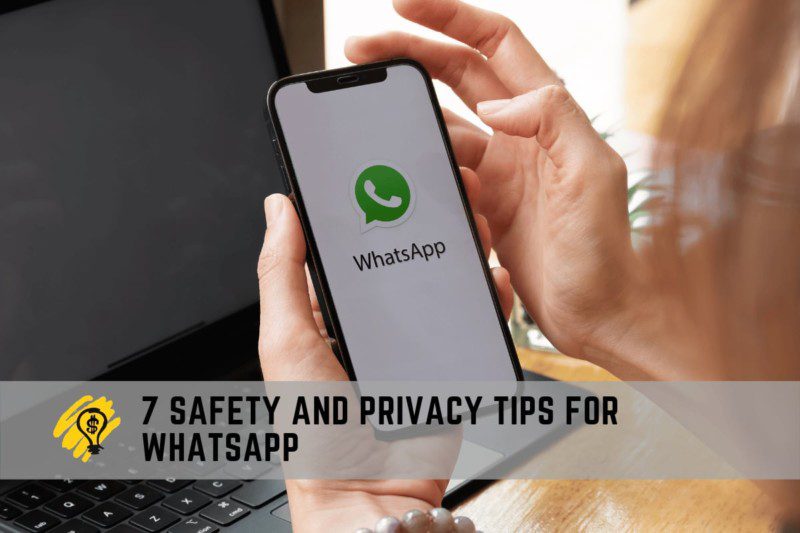Billions of people are using the messaging software WhatsApp.
With WhatsApp’s recent rapid growth, WhatsApp hacking apps such as those on the EarthWeb lists have similarly appeared in abundance. These programs allow anyone to access WhatsApp messages and assets with ease, making WhatsApp a vulnerable target for hackers. We all know that keeping in touch with loved ones and coworkers has never been easier than through the use of WhatsApp, thanks to its conversation encryption options, high-quality media, and trustworthy groups. But keeping yourself safe from cybercriminals when utilizing any online service is a top priority.
In this article, we’ll go over seven of the most important safety and privacy recommendations for WhatsApp, so you can feel confident chatting with friends and family.
1. Don’t Message Strangers Back
Avoiding communication with unknown users is among the most crucial ways to protect yourself on WhatsApp. Please ignore any messages from people you don’t know. Furthermore, you should be alert about who you add to your WhatsApp connections. Don’t add just anyone; only people you completely trust should be added. There are some real professional scammers out there who are ready to take your information and use it against you or trick you into giving them money. Please be aware of scams, especially in groups.
2. Don’t Share Personal Information
Whatever you do, don’t share your personal information with anyone. You might be alert and protective of your WhatsApp account and its data, while other people might just be careless about theirs, so it’s important what you share with them. You should not share information like your billing address, mobile number, email account, credit card number, account credentials, or social security number.
3. Use the Privacy Settings
With WhatsApp, you may restrict who can view your profile image, status updates, and the last seen time and date. Protecting your data and keeping your account secure require that you take advantage of these options. Since WhatsApp provides you with these features, why not use it? Enabling these settings will help you protect your account and its data.
4. Never Open Attachments From Emails You Didn’t Expect To Get
Clicking on links can get you into real trouble, as you may be subject to hacking threats. These suspicious links are typically distributed via group chat and, less frequently, privately. WhatsApp phishing links are a real threat since they give criminals access to your data. You do not need to click on links sent to you by someone you do not know. Be aware of suspicious-looking links delivered to you by individuals you know as well. Some apps detect if the link is a possible threat; you should be using such apps if you persist in discovering where these links might land you.
5. Use Two-Factor Authentication
To help boost your WhatsApp account’s safeguards, you may activate two-factor authentication. Logging in from a new device will prompt you to input a code given to your phone via this security measure. As a result, even if someone else discovers your password, your account will still be accessible only to you. When you enable this feature, you will be expecting a six-digit code with every login you make. You will be sure that only you can access your account.
6. Keep Your Software Up-to-Date
You must always use the most recent version of WhatsApp, as this is when you’ll receive the most significant security upgrades that prevent hackers from exploiting previously discovered flaws. Searching for updates to WhatsApp in the App Store or Google Play is how you get the latest version. These updates are necessary because they will enhance your user experience as well as make your data more secure through additional security patches. Updates can also include adding other privacy settings that you can enjoy!
7. Use a Secure Password
This might be confusing because WhatsApp accounts require no password. As a substitute for the password, you can use a third-party app that locks your WhatsApp. Your phone might also be able to do this without the interference of any other app. Activating access to the app only with your fingerprint might do just fine.
Now that you know all about these things, you should protect yourself from data theft and account hacking. It’s simple and easy to fortify your online activity, whether it’s on WhatsApp or any other social media site.





